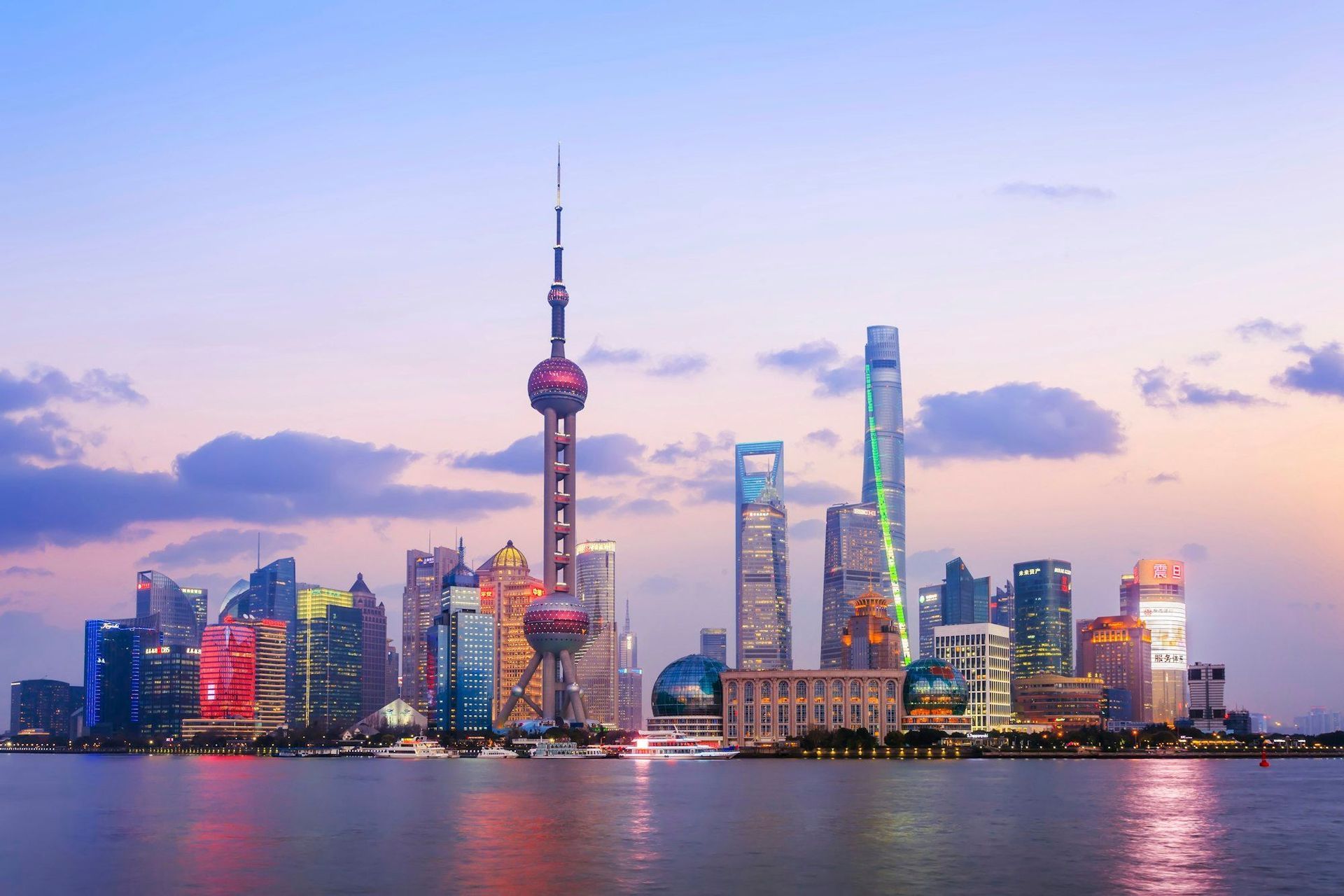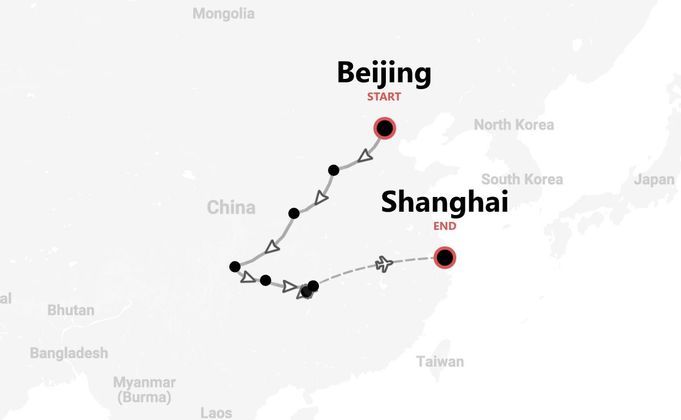
Group trips to China
Our organized trips to China
China is a vast tapestry where ancient legacies dance with future-forward visions, offering an unparalleled journey of discovery. From the awe-inspiring majesty of the Great Wall, winding through breathtaking landscapes, to the glittering, vertical metropolis of Shanghai, a beacon of innovation, this nation presents a kaleidoscope of experiences. Venture to the ethereal karst peaks and tranquil rivers of Guilin, where nature's artistry unfolds in dramatic fashion, or delve into culinary traditions that delight every palate. China invites curious adventurers and cultural enthusiasts to explore its boundless wonders and embrace its vibrant, ever-evolving spirit.
FAQs about China
If you are a UK citizen, to find out the entry requirements for China, you can check this informational page from our partner Sherpa. If you need a visa, you can apply for it through Sherpa. If you are not a UK citizen, you can still use Sherpa by changing the nationality in the 'Passport' section.
Before traveling, always remember to check the government website of your country of origin for updates on the entry requirements for China – you wouldn’t want to stay home due to a bureaucratic detail!
- UK residents: review the FCDO Travel Advice.
- US residents: consult the US Department of State Travel Advice.
- Other residents: refer to your government or local consulate's travel advice.
China operates on China Standard Time, which is 8 hours ahead of Greenwich Mean Time. It does not observe daylight saving time. If it is 12pm in the UK, it will be 8pm in China. Keep this in mind when planning your calls or travel arrangements.
China's currency is the Chinese Yuan Renminbi (CNY or RMB). The daily exchange rate can vary, but as a rough guide:
- 1 GBP is about 8.8 CNY
- 1 USD is around 7.3 CNY
- 1 EUR is approximately 7.9 CNY
To exchange currency, you can visit banks, currency exchange counters at airports, or authorized hotels. Always check for the current rates before exchanging money.
In China, the most common payment methods are mobile payment apps like Alipay and WeChat Pay. You can also use credit and debit cards, especially in larger cities and tourist areas. Cash is still widely accepted, but it's becoming less common in urban areas.
It's a good idea to download Alipay or WeChat Pay before you go, as they are widely used for everything from shopping to street food. Make sure your card is enabled for international use if you plan to use it.
Tipping is not a common practice in China and is often not expected. In most restaurants, hotels, and taxis, you won't need to tip. However, in some high-end places or those catering to international tourists, tips might be appreciated. If you feel the service was exceptional and you want to tip, a small token of appreciation is fine, but it is not necessary. Remember, if you do decide to tip, it’s always best to hand it directly to the person to ensure they receive it.
Internet access in China can be a bit different than what you're used to. Many popular Western websites and apps are restricted. Wi-Fi is available in major cities, hotels, cafes, and airports, but connections can be slow and unreliable.
For more stable and unrestricted access, we suggest you buy a local SIM card or an e-SIM data plan. Providers like China Mobile, China Unicom, and China Telecom offer various data packages. Just make sure your phone is unlocked before purchasing a local SIM.
In China, the official language is Mandarin Chinese. It's spoken by the majority of the population and is used in government and media. Here are some useful colloquial expressions you might hear or use:
- Hello: Nǐ hǎo (你好)
- Thank you: Xièxiè (谢谢)
- How much: Duōshǎo qián (多少钱)
- Yes: Shì (是)
- No: Bù shì (不是)
These phrases can be handy while traveling around the country.
In China, the power plugs and sockets mainly used are type A, C, and I. The standard voltage is 220 V, and the frequency is 50 Hz. Since these plugs might differ from those used in Europe or the USA, we recommend you bring a universal adapter to ensure all your devices can be charged during your stay. This way, you will be prepared for any plug type you encounter.
China does not have a single main religion, but rather a mix of several belief systems.
The most practiced include Buddhism, Taoism, and Confucianism. It’s important to note that religious freedom is constitutionally protected, but the practice of religion is subject to government regulation. Important religious holidays include the Chinese New Year and the Mid-Autumn Festival, which are widely celebrated across the country.
Traveling to China is an exciting adventure, and packing smartly can make your trip more enjoyable.
Here's what you should pack in your backpack for China:
-
Clothing:
- Lightweight clothing for the summer
- Warm layers for the winter
- A rain jacket
- Comfortable travel pants
-
Shoes:
- Comfortable walking shoes
- Sandals for warmer weather
- Dress shoes if planning to dine out
-
Accessories and Technology:
- Power bank
- Universal travel adapter
- Camera or smartphone for photos
- Travel guidebook or translation app
-
Toiletries and Medication:
- Basic toiletries like toothbrush and toothpaste
- Sunscreen and insect repellent
- Hand sanitizer
- Common travel medication like pain relievers, motion sickness tablets, and stomach remedies
This list should have you covered for a great trip to China.
China is vast, so the weather can vary significantly across regions:
- North (Beijing, Harbin): Cold winters with snow, hot summers. Best time to visit is spring (April-June) and autumn (September-October).
- South (Guangzhou, Shenzhen): Mild winters, hot and humid summers. Best time to visit is from October to December.
- East (Shanghai, Hangzhou): Cold and damp winters, hot and humid summers. Best time to visit is spring and autumn.
- West (Tibet, Xinjiang): Harsh winters, cool summers in high-altitude areas. Best time to visit is from May to October.
Overall, the best time to explore China is usually in spring and autumn due to more moderate temperatures and less rain.

